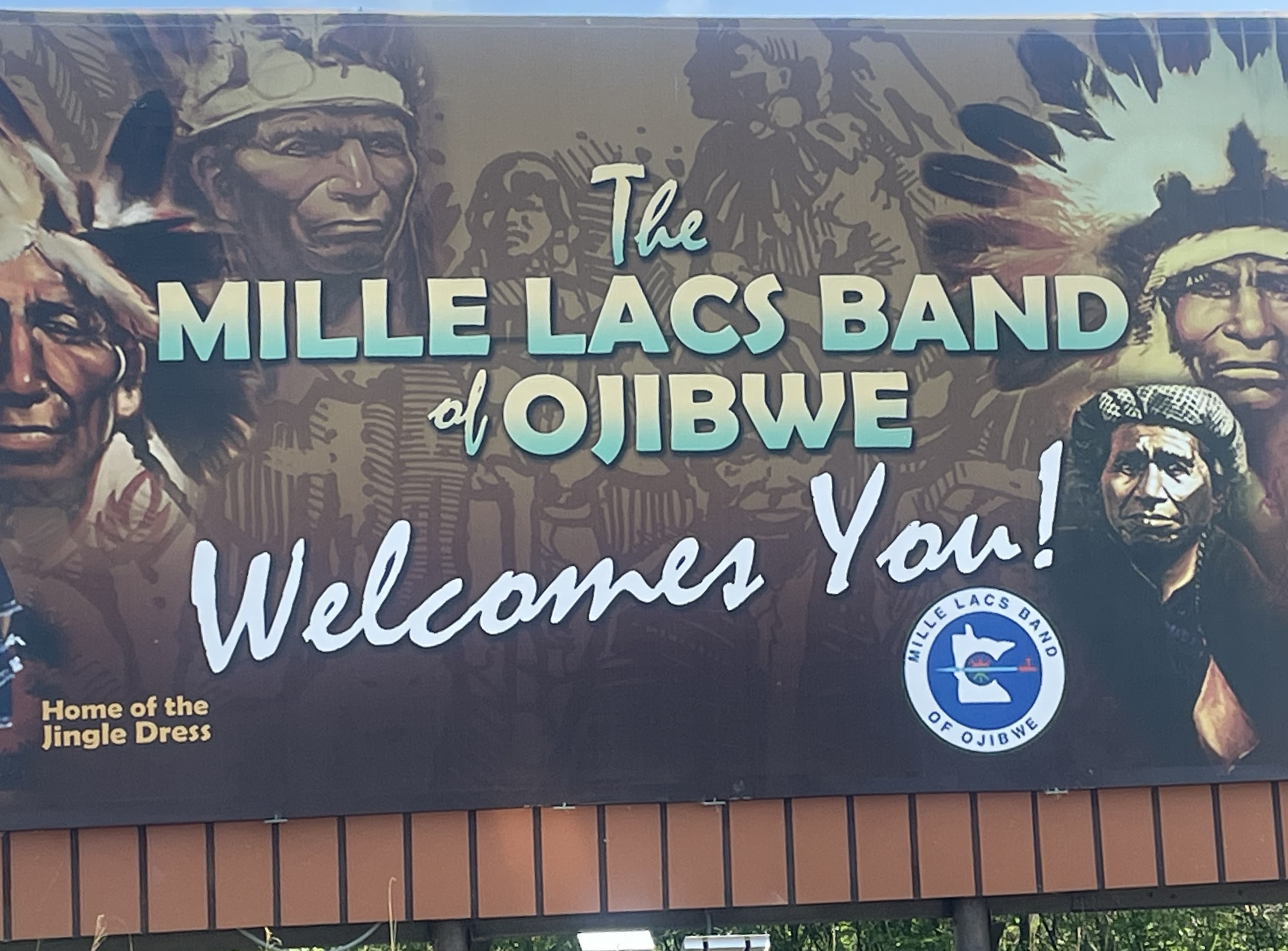
- Details
- By Native News Online Staff
On Tuesday, September 26, 2023, the Leech Lake Band of Ojibwe, the Bois Forte Band of Chippewa, the Grand Portage Band of Lake Superior Chippewa, and the National Congress of American Indians, represented by the Native American Rights Fund, jointly submitted an amicus curae (friends of the court) brief in support of the Mille Lacs Band of Ojibwe in their ongoing case against the County of Mille Lacs, currently under consideration by the U.S. Court of Appeals for the Eighth Circuit.
The original lawsuit brought forth by the Mille Lacs Band of Ojibwe stemmed from disagreements concerning law enforcement responsibilities. For many years, the county and the tribal nation had maintained a collaborative policing agreement that acknowledged the tribal police's authority to enforce criminal laws and conduct investigations within the reservation.
When the county declined to renew this agreement, incidents of crime within the reservation escalated due to actions taken by the county to limit the jurisdiction of tribal law enforcement. The county contended that the Mille Lacs reservation had been disestablished and reduced in size, thereby asserting that tribal police were operating beyond their rightful jurisdiction.
However, in March 2022, the District Court issued a comprehensive 93-page ruling affirming that the boundaries of the Mille Lacs reservation remained intact as established in an 1855 treaty. Subsequently, the county appealed this decision to the Eighth Circuit.
The amicus brief initially contends that the matter is now rendered moot. Recent revisions to Minnesota state law have effectively resolved the dispute concerning tribal criminal jurisdiction. These amendments now explicitly acknowledge the concurrent jurisdiction of tribal nations and local county sheriffs in enforcing state criminal laws. Despite the mootness of the case, the amicus brief further elucidates that the District Court's ruling, supported by more than fifty years of legal precedent in state and federal courts, accurately affirmed the non-disestablishment of the Mille Lacs Reservation.
Tribal nations steadfastly uphold their commitment to safeguarding their sovereignty, protecting their communities, and defending their treaty rights. Furthermore, these recent developments in Minnesota law serve to clarify and strengthen tribal jurisdiction, ensuring a safer and more self-reliant future for both Native and non-Native residents within Indian Country. The Native American Rights Fund takes pride in standing alongside Minnesota tribal nations and the broader Indian Country community in their collective effort to respond effectively to crime and violence in Indian Country.
To read the amicus curiae brief, please visit the following link:https://www.narf.org/nill/documents/20230926amicus-mille-lacs-8th-circ.pdf
More Stories Like This
Navajo Resources and Development Committee Issues Notice on Livestock Inspection RequirementsAmerican Prairie, Tribal Coalition Files Protest Over Rescinded Grazing Rights
Northern Cheyenne Push Back Against Trump Administration’s Effort to Alter Little Bighorn History
Florida Man Sentenced for Falsely Selling Imported Jewelry as Pueblo Indian–Made
Navajo Nation Declares State Of Emergency As Winter Storm Threatens Region
Help us defend tribal sovereignty.
At Native News Online, our mission is rooted in telling the stories that strengthen sovereignty and uplift Indigenous voices — not just at year’s end, but every single day.
Because of your generosity last year, we were able to keep our reporters on the ground in tribal communities, at national gatherings and in the halls of Congress — covering the issues that matter most to Indian Country: sovereignty, culture, education, health and economic opportunity.
That support sustained us through a tough year in 2025. Now, as we look to the year ahead, we need your help right now to ensure warrior journalism remains strong — reporting that defends tribal sovereignty, amplifies Native truth, and holds power accountable.
 The stakes couldn't be higher. Your support keeps Native voices heard, Native stories told and Native sovereignty defended.
The stakes couldn't be higher. Your support keeps Native voices heard, Native stories told and Native sovereignty defended.
Stand with Warrior Journalism today.
Levi Rickert (Potawatomi), Editor & Publisher


